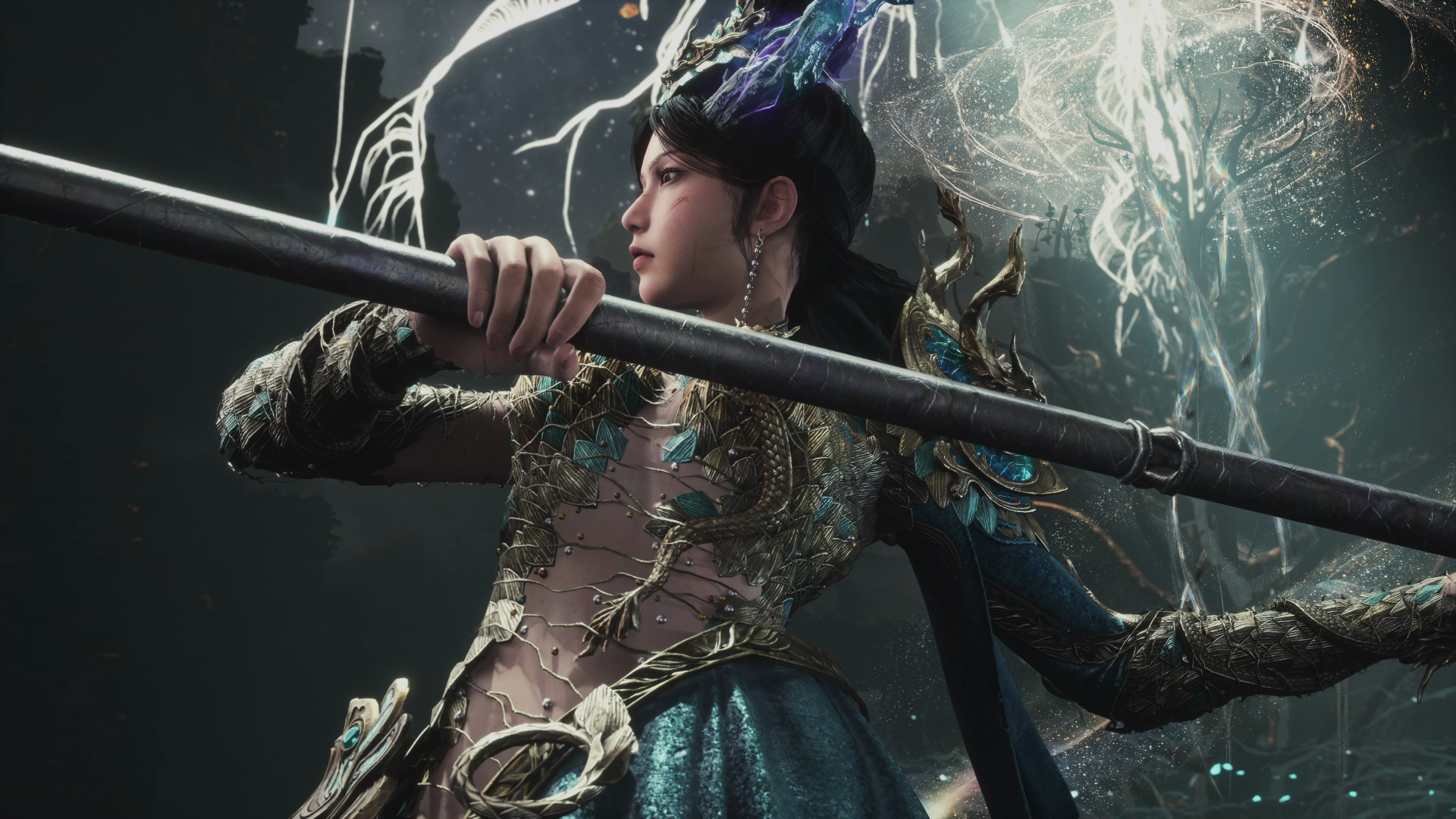TechRadar Verdict
Wuchang: Fallen Feathers is the best soulslike game since 2023’s Lies of P. Developer Leenzee has handled almost everything expertly, from intricate level design that intelligently loops back on itself to thrillingly fast-paced combat that introduces some very fun defensive elements. It’s also a game that really makes you think about your loadout on a per-level basis, with status afflictions and damage types playing an important role. Some frustrating moments aside, Wuchang: Fallen Feathers is an essential soulslike experience.
Pros
- +
Impressive branching level design
- +
Mixes up soulslike combat with cool defensive options
- +
A robust skill tree that you can respec at any time
- +
Tons of memorable boss fights
- +
Incredible soundtrack
Cons
- -
Two poison swamps back to back
- -
Some very questionable enemy placement at times
- -
Some stage hazards are incredibly hard to see
- -
Locating NPCs for questlines can be difficult
- -
The final level almost made me become the Joker
Why you can trust TechRadar
Developer Leenzee’s Wuchang: Fallen Feathers surprised me in the most pleasant of ways. Going into the soulslike action role-playing game (RPG) for review, I was expecting a competent game that would ultimately struggle to stand out in the space, similar to a Lords of the Fallen or Mortal Shell. What I found instead was a deeply and constantly compelling action game that I consider to be the best soulslike game since 2023’s exceptional Lies of P.
Platform reviewed: PS5
Available on: PS5, Xbox Series X|S, PC
Release date: July 24, 2025
A dark take on the Ming Dynasty era of Chinese history, Wuchang: Fallen Feathers tells a shockingly grim tale, replete with themes of cyclical violence, abduction, forced marriage, and no shortage of grotesque body horror.
All this sets the backdrop to what is an incredibly refreshing soulslike experience. The game has that classic, Dark Souls-style level design, offering plenty to explore and multiple areas you can branch off into at any given time. Combat also has shades of Bloodborne, greatly rewarding evasion over blocking, and featuring a relatively careful selection of weapons that all pack their own unique skills.
Add in the fact that you can respec your skill tree limitlessly and for free, and you also have a game that encourages you to mix up your style frequently. Some levels and bosses, for example, are best countered with specific weapons, skills, status afflictions, and so on. Whenever I got stuck on a particularly demanding boss fight, I usually found that a few tweaks to the skill tree could make a world of difference.
Difficulty-wise, it’s not the hardest soulslike ever, and if you’ve cut your teeth on rock-hard titles like Lies of P, Sekiro: Shadows Die Twice, or Nioh 2, you’ll be well-prepared for the horrors in Wuchang: Fallen Feathers. That’s not to say it’s a cakewalk, though.
A handful of bosses will certainly stop you in your tracks, and levels will typically have one or two key hazards to be aware of. Sometimes Wuchang takes this a little too far; two different flavors of poison swamp in a row is a bit much, one level is littered with landmines that are needlessly difficult to spot, and the final area (without spoiling anything, of course) is an exercise in pure unbridled frustration to the point where I actually needed to get up and go out for a walk before I realized the temptation to hurl my DualSense into orbit.
Even still, Wuchang: Fallen Feathers is one of those rare instances where, after rolling credits, I immediately wanted to play through it again. And thanks to the game supporting New Game Plus at launch, it’s easy to dive right back in, chasing down its multiple endings with all your gear, skills, and levels intact.
Sign up for breaking news, reviews, opinion, top tech deals, and more.
Hope is the thing with feathers
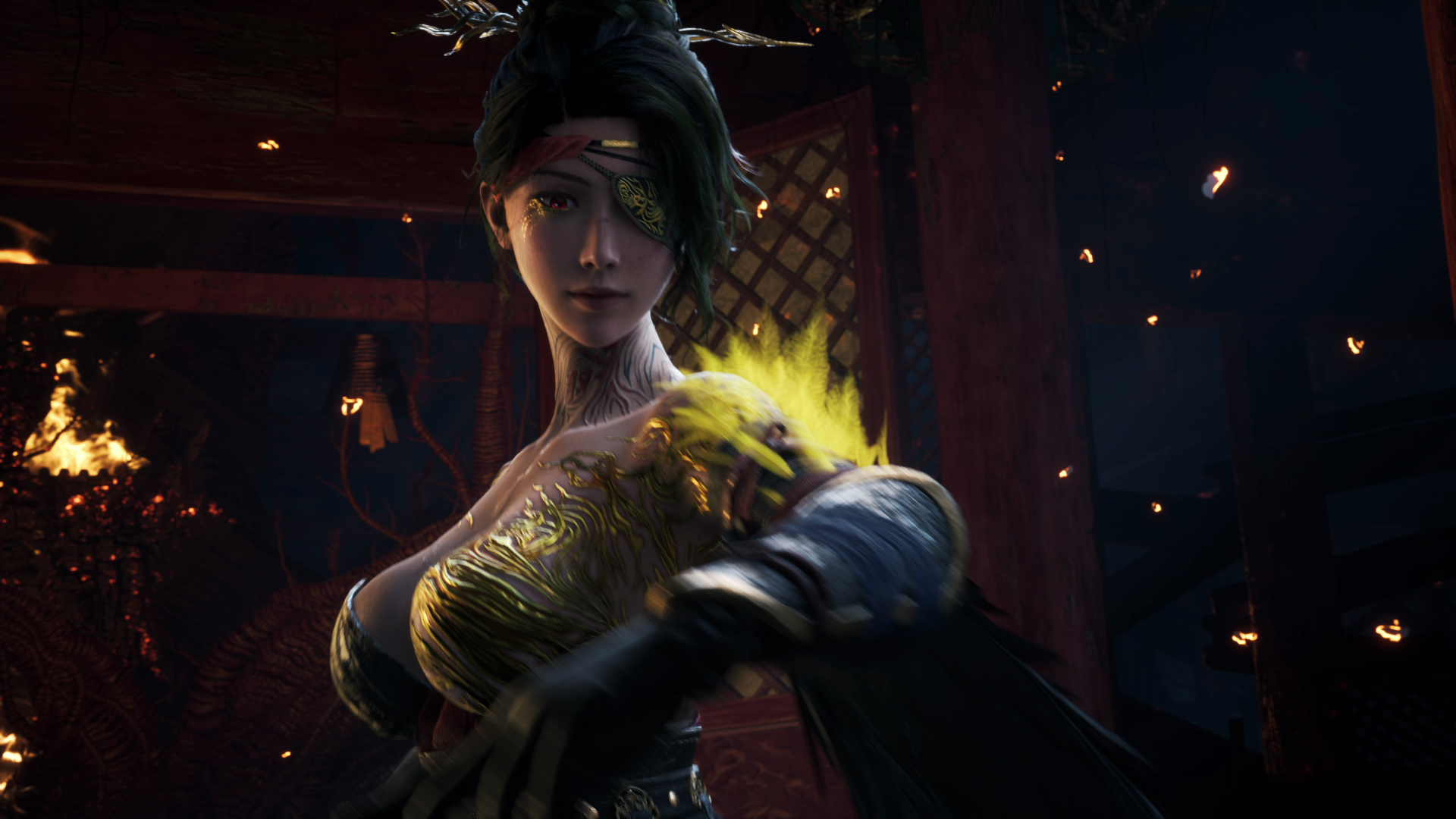
You play as the titular Wuchang, a formidable pirate warrior who, at the start of the game, has been struck with a bout of amnesia. Unfortunately, that’s the least of her worries, as she’s also been afflicted with a disease known as the Feathering - an excruciatingly painful malady that drives people to madness, beasthood, and things even worse than that.
Wuchang is a special case, as she’s able to harness Feathering to bolster her combat prowess. In gameplay, this primarily comes in two forms - Skyborn Might and the Madness gauge. I’ve been over both in my original Wuchang: Fallen Feathers hands-on, but I’ll explain further why they’re now some of my all-time favorite soulslike mechanics.
Skyborn Might is a combat resource you can accrue in several ways, up to a maximum of five stacks. The main method of building it up is to perform a ‘shimmer,’ which is essentially a well-timed dodge that completely negates damage. The game’s five weapon types - longswords, axes, spears, one-handed swords, and dual blades - also all have their own ways of building Skyborn Might once you unlock them in the skill tree (more on that later).
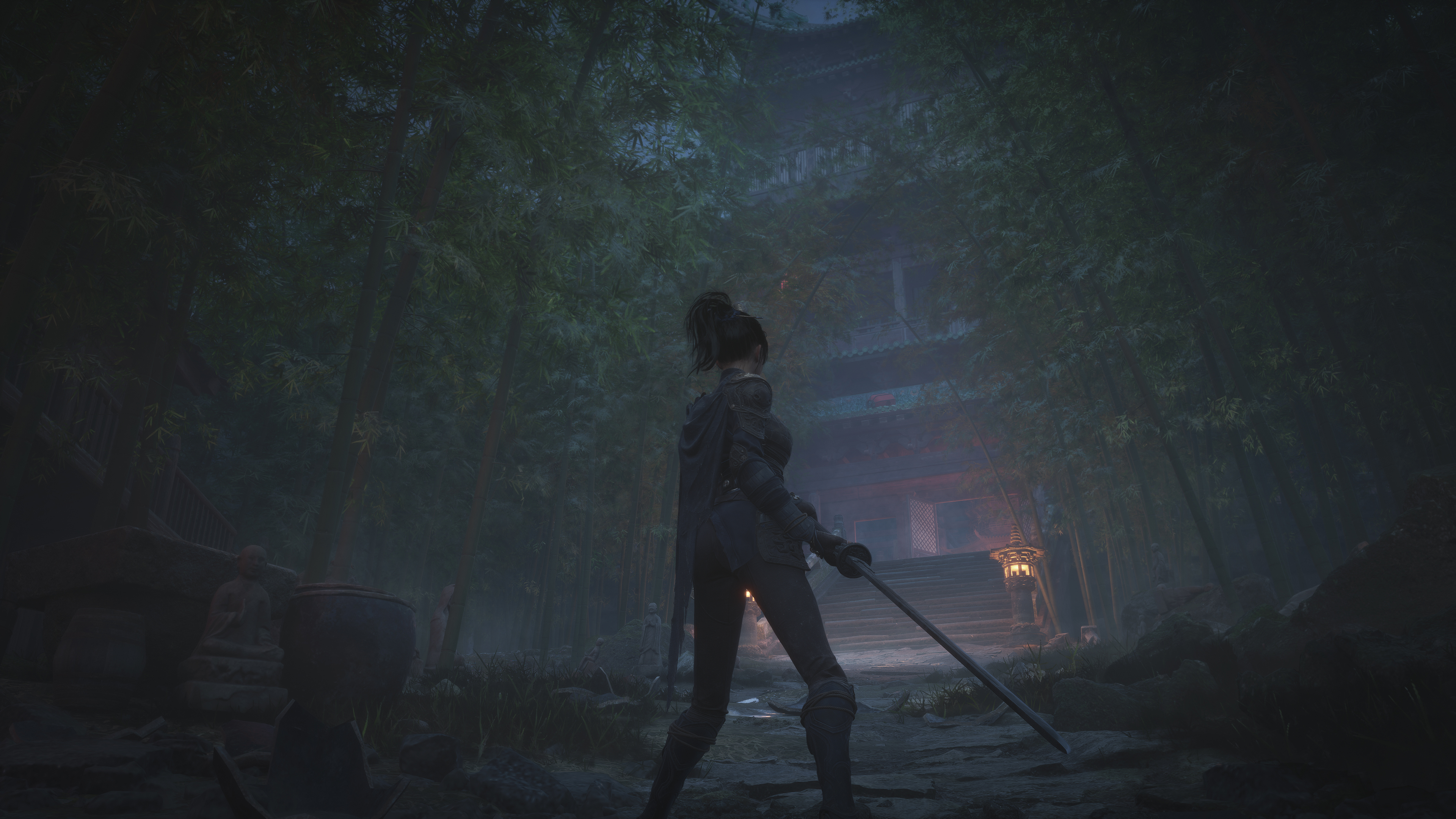
I was constantly impressed by the level design in Wuchang: Fallen Feathers. There’s plenty to explore in each level, shortcuts are handled smartly, and there’s occasionally multiple major areas you can branch off into if you’re struggling to make progress and fancy a change of scenery. In that sense, it reminds me somewhat of how the original Dark Souls handled its level design back in 2011.
Longswords, for example, grant a charge upon hitting an enemy with the second attack in the light attack combo string. One-handed swords can build it automatically over time. Spears, meanwhile, have their own resource that can be converted into multiple Skyborn Might stacks if played effectively.
So, what is Skyborn Might for? It has two main uses. Your weapon comes equipped with two skills - one signature skill unique to that weapon, and another known as a Discipline, which you can unlock on the skill tree. Discipline skills can be applied to any weapon in their respective family, and each weapon type has around three or four skills you can unlock, not dissimilar to the Nioh series’ unlockable moves.
If you’re running a magic-focused build, Skyborn Might is also used to cast spells. This is an approach that I really love. Wuchang has no separate magic bar that you need to keep on top of, a la Dark Souls 3 or Elden Ring. Instead, you’ll need to decide how to best spend your Skyborn Might charges; do you go all-in on the offensive with your weapon skills, or hang back with spells? It’s an elegant system that rewards a careful balance of offense and defense.
Going berserk
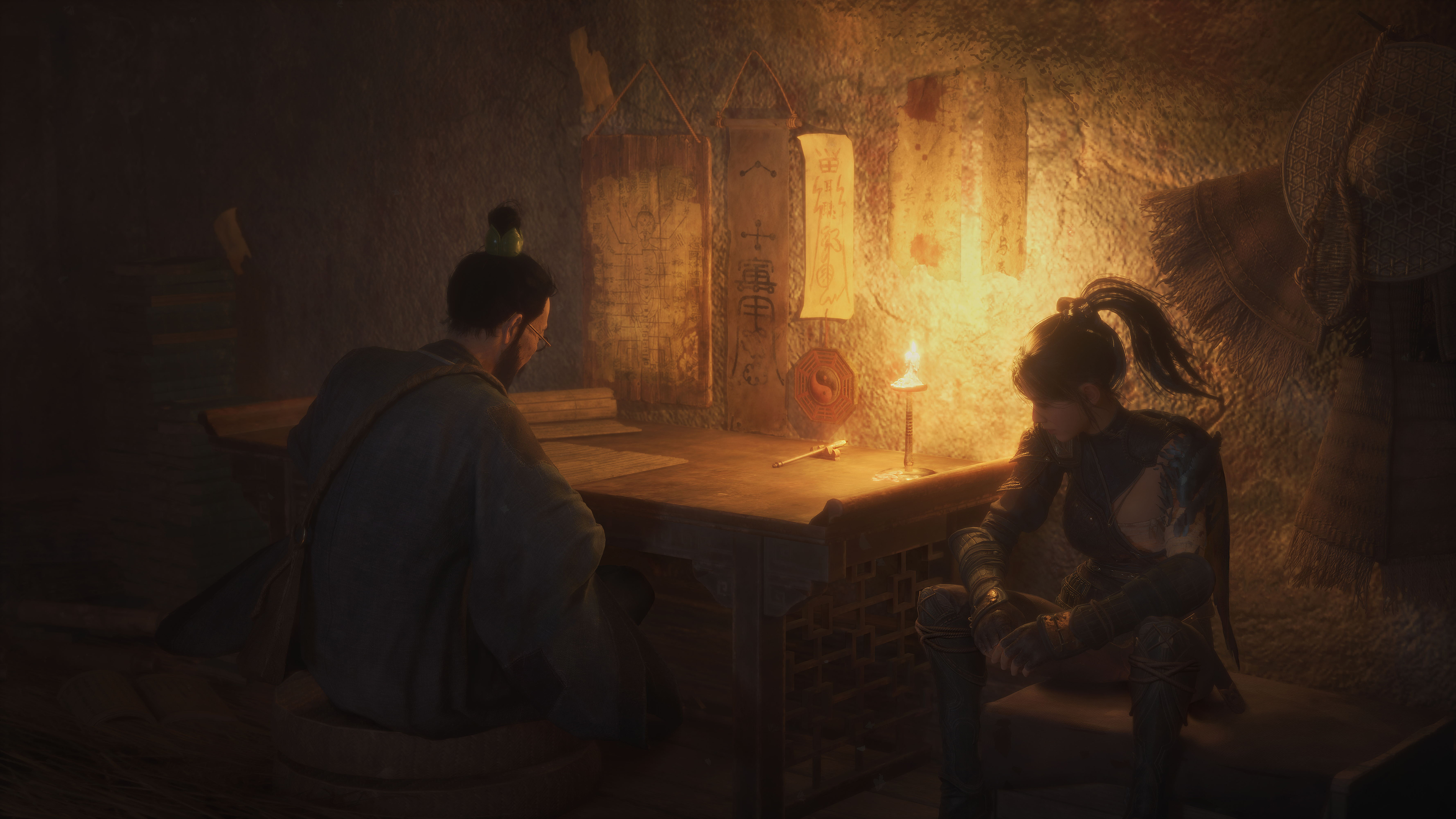
The Madness gauge, meanwhile, is decidedly more complex. Madness builds up when you die or kill humanoid enemies, and decreases when killing enemies afflicted with Feathering. There are thresholds at 50% and 90%, at which point Wuchang’s eyes glow red, and you can make use of Madness-related abilities unlocked via the skill tree. To get to these thresholds, you can also make use of certain items that boost the amount of Madness you have.
It’s a risk/reward system, though. If you reach full Madness, you’ll both deal and take more damage. And if you die while fully maddened, a dangerous demon will manifest where you last dropped your level-up currency (called Red Mercury in this game).
During my initial preview, I felt this mechanic could get frustrating and tiresome. After all, introducing another powerful enemy to an already-frustrating section is bound to go south, right? What I didn’t know back then is that the demon attacks indiscriminately, meaning it can be used to your advantage to distract or take down powerful foes.
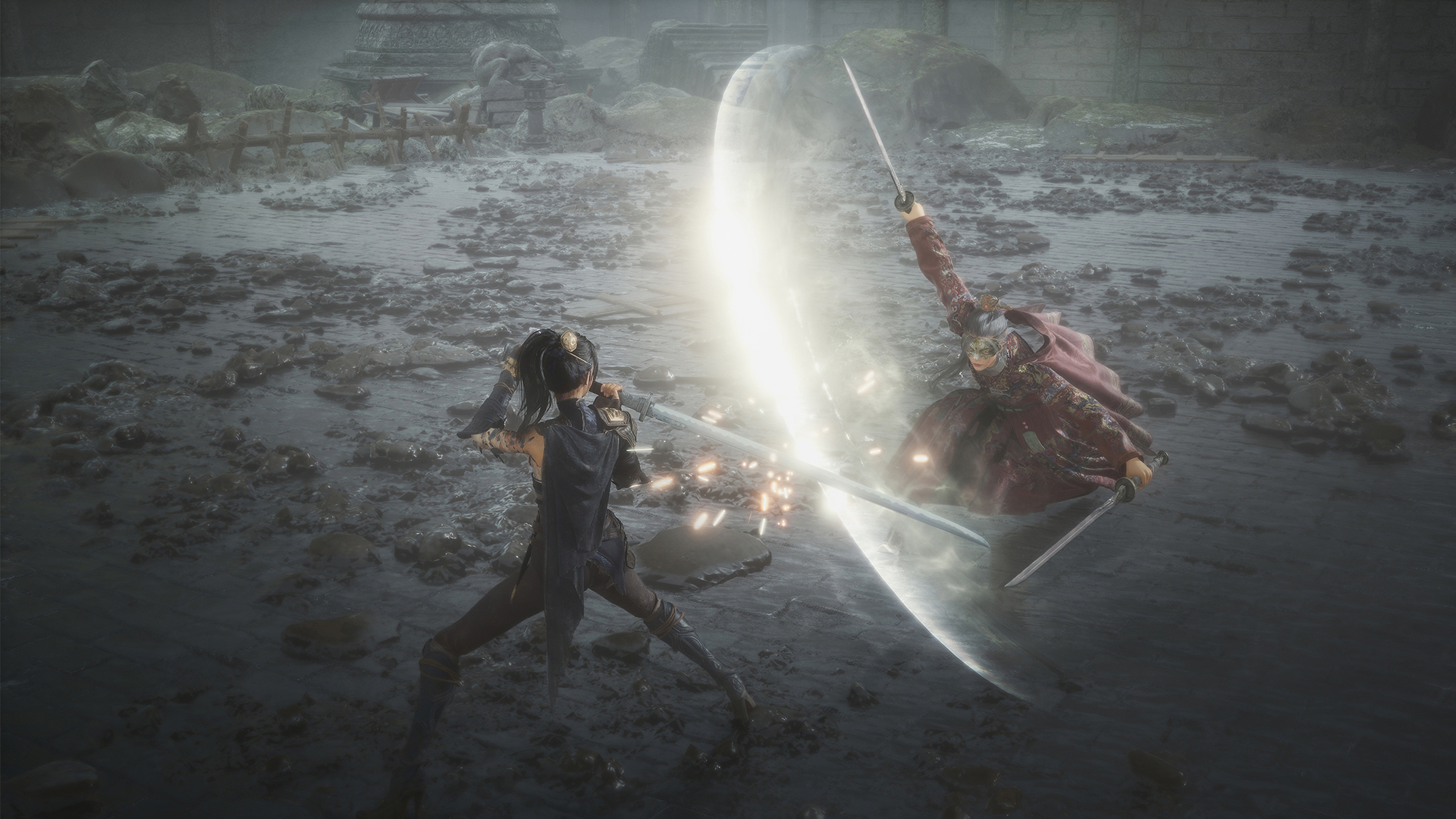
I now think this is an ingenious inclusion; while the demon doesn’t spawn in boss fights, if you’re stuck on a particularly tough area or elite enemy, it can lend an involuntary helping hand and grant you much-needed room to breathe. Killing the demon will also reset your Madness to zero, so there’s still a choice in whether you want to engage it or not, depending on the type of play style you’re going for.
Madness initially seems like something you wouldn’t want to deal with, but when managed right, it becomes a powerful tool and a certified ace up Wuchang’s sleeve. Like many things in the game, it’s all about balance. Madness can be risky, but the power it grants Wuchang shouldn’t be ignored, especially for the game’s more challenging encounters.
Dressed for the occasion
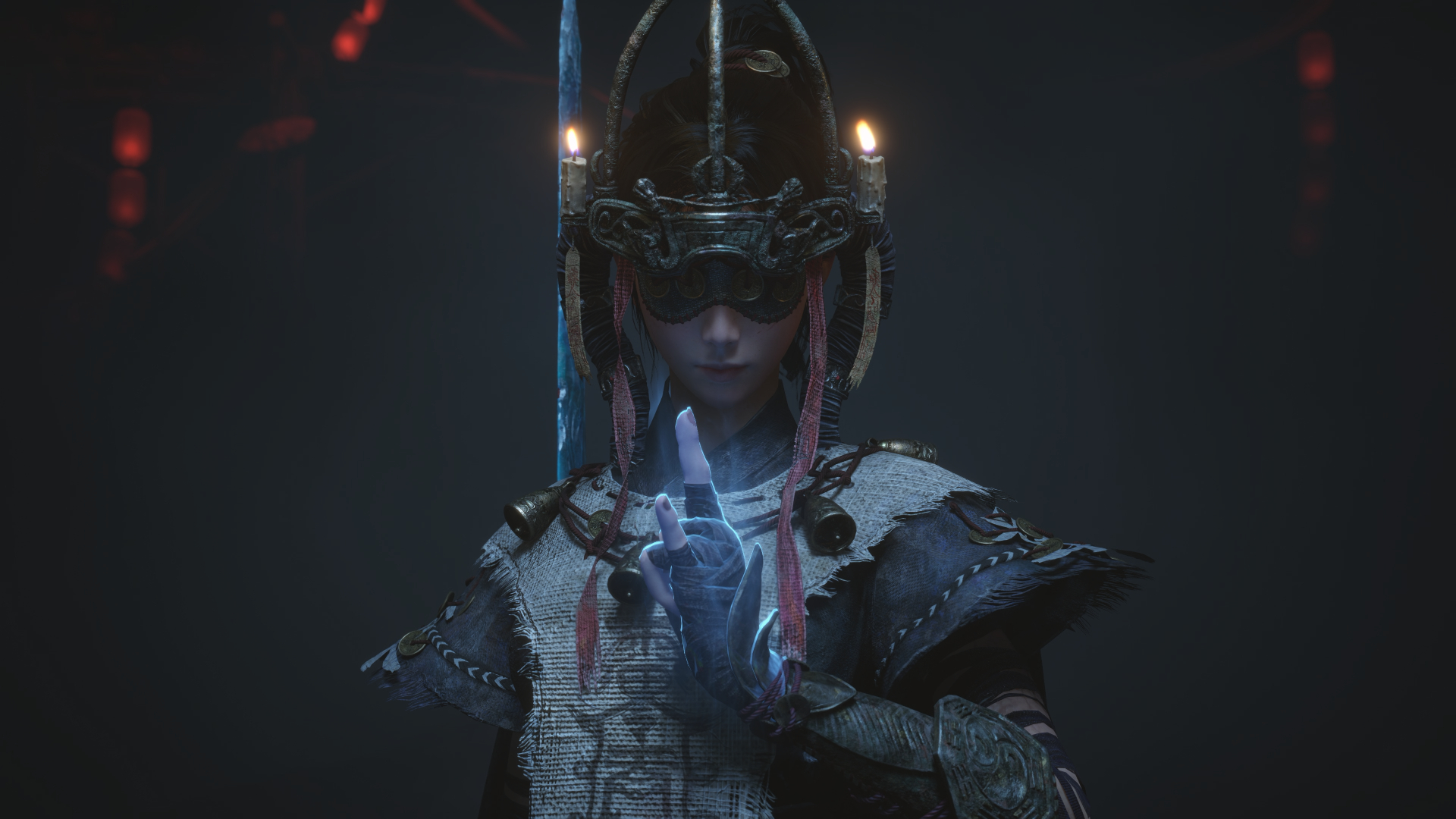
There are plenty of ways to make Wuchang more capable throughout your playthrough, which is where the skill tree comes in. Leveling up in Wuchang: Fallen Feathers is a bit different than your average soulslike. You still get currency for leveling and buying items upon defeating enemies, but you’ll instead convert that currency into Red Mercury Essence, which are effectively skill points.
The skill tree in Wuchang is pretty sizable and divided into six main branches - one for each weapon type, and another for ancillary features like improving healing flask potency and unlocking powerful Madness-related buffs. The skill tree is still dotted with upgrades for your main stats (including health, stamina, weapon, and magic attack power), but you’ll also spend your points on new abilities, ability modifiers, and bone needle items, which can be used to temporarily add a status element to your weapon.
It seems a bit intimidating at first, but remember, you can reset skill points whenever you desire by resting at a shrine (this game’s equivalent of bonfires or sites of grace - effectively, checkpoints). Resetting is completely free, and you can choose to either refund all skill points or just a few to put somewhere else.
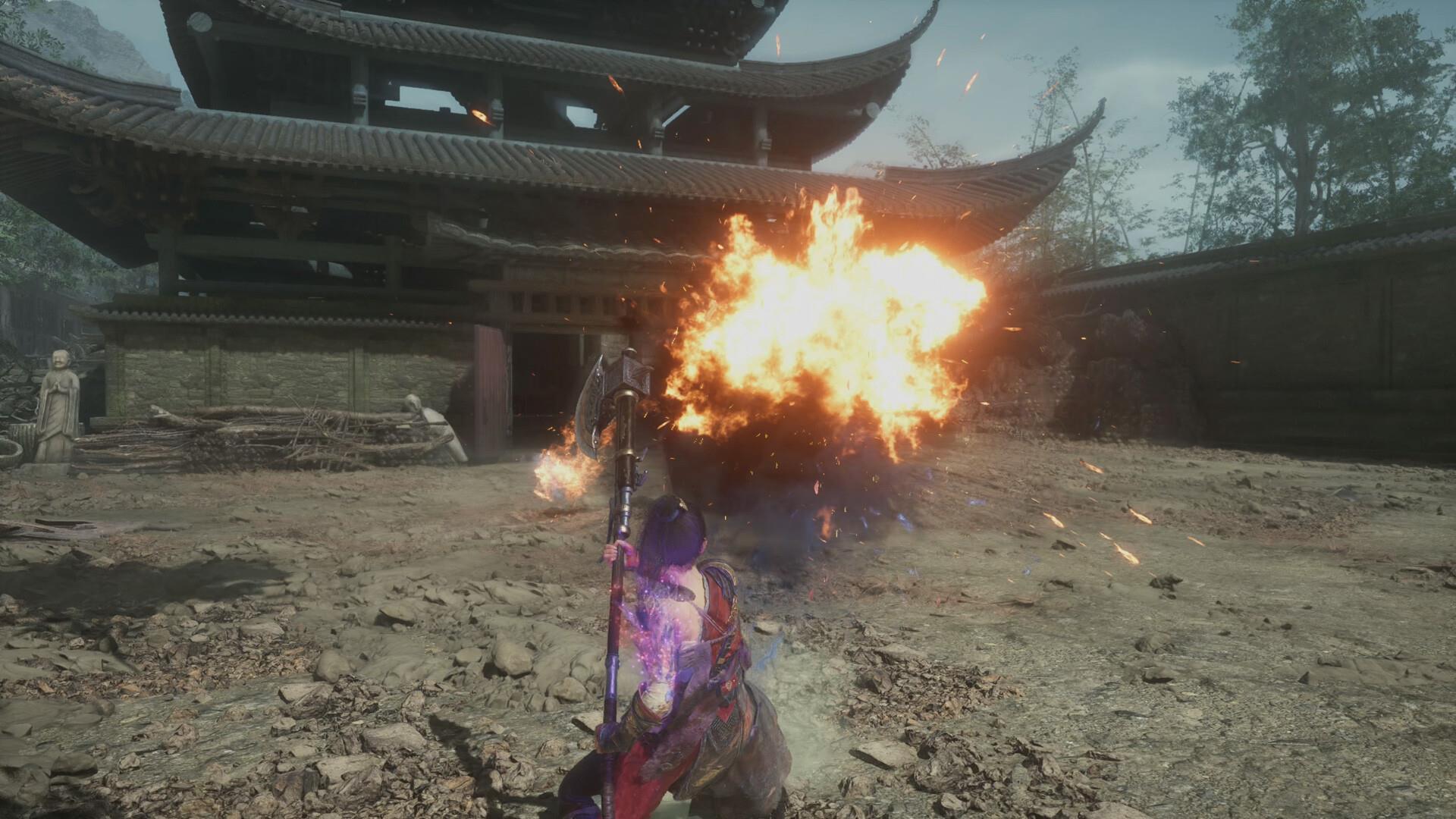
What this means, then, is that you are strongly encouraged to mix up your skill point distribution from time to time, and Wuchang’s level and boss design back this up. Some bosses, for example, can be made much easier by unlocking the longsword’s Deflect discipline, which can parry weapon-based attacks. Deflect is powerful, but it’s not universal, and won’t work against spells or enemies that attack with, say, their hands.
Wuchang also places great importance on status effects and being able to resist them. In most soulslikes, status effects can be a mild annoyance, but Wuchang often expects you to have an answer to them. One area, for example, is set on a chilly mountain, and Wuchang will gradually accrue Frostbite while here. To combat this and other status effects, you can ingest status-fighting items or pieces of armor made with those resistances in mind.
The game can occasionally lean into this a bit too much for my liking, though. Having two flavors of ‘poison swamp’ style areas back to back is certainly a choice. Moreover, one very annoying enemy type builds up Despair when in view, instantly killing Wuchang should it fill up. Then there’s the game’s final area, which may as well be the final boss of all poison swamps, complemented by relentlessly hostile enemies with massive pools of health.
No spoilers, of course, but this one area was a bit of a black mark on the whole experience for me, and its massive size definitely made it outstay its welcome as I found myself begging and pleading for it all to be over.
An exceptional soulslike experience
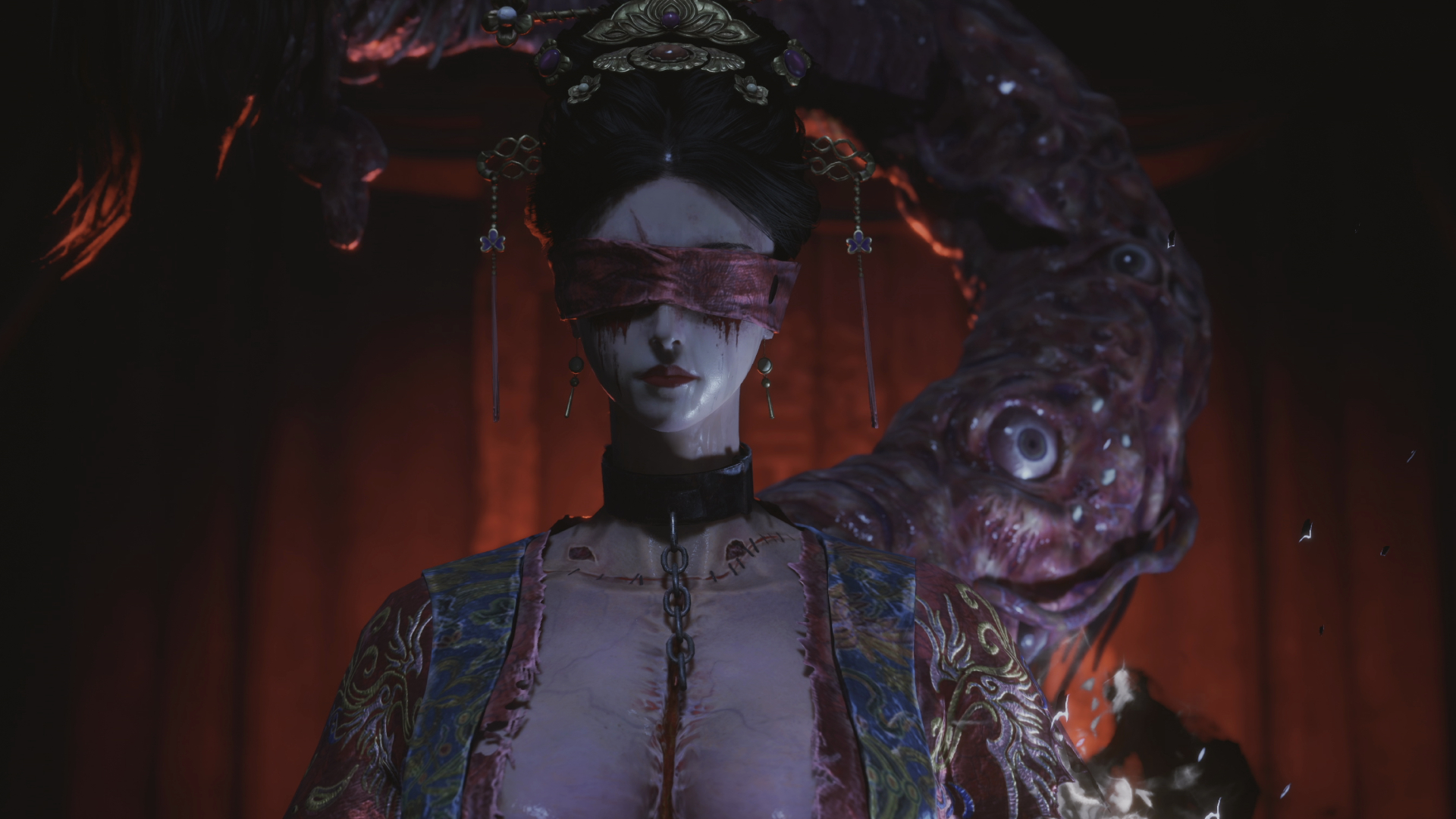
Even with that final area almost making me want to commit to the life of a hermit, it did not completely spoil what has been one of my favorite gaming experiences of the year. Wuchang: Fallen Feathers is an expertly crafted soulslike with some of the subgenre’s most impressive level design. It’s so rare for these types of games to instill the same wonder that makes FromSoftware’s output so special, but I was always so curious to see what Wuchang had in store around each and every corner.
Areas are also punctuated by some truly incredible boss fights. There’s a good variety here, too, from nimble humanoid warriors to hulking monstrosities. These encounters are where Wuchang’s phenomenal soundtrack shines, too. One boss later in the game really caught me off guard with a blistering metal track that nonetheless felt perfectly in place given the boss’s appearance and context.
If you swear by soulslikes as one of your favorite kinds of gaming experiences, then Wuchang: Fallen Feathers might just land on your personal game of the year list, because it’s certainly found a place on mine.
Should I play Wuchang: Fallen Feathers?
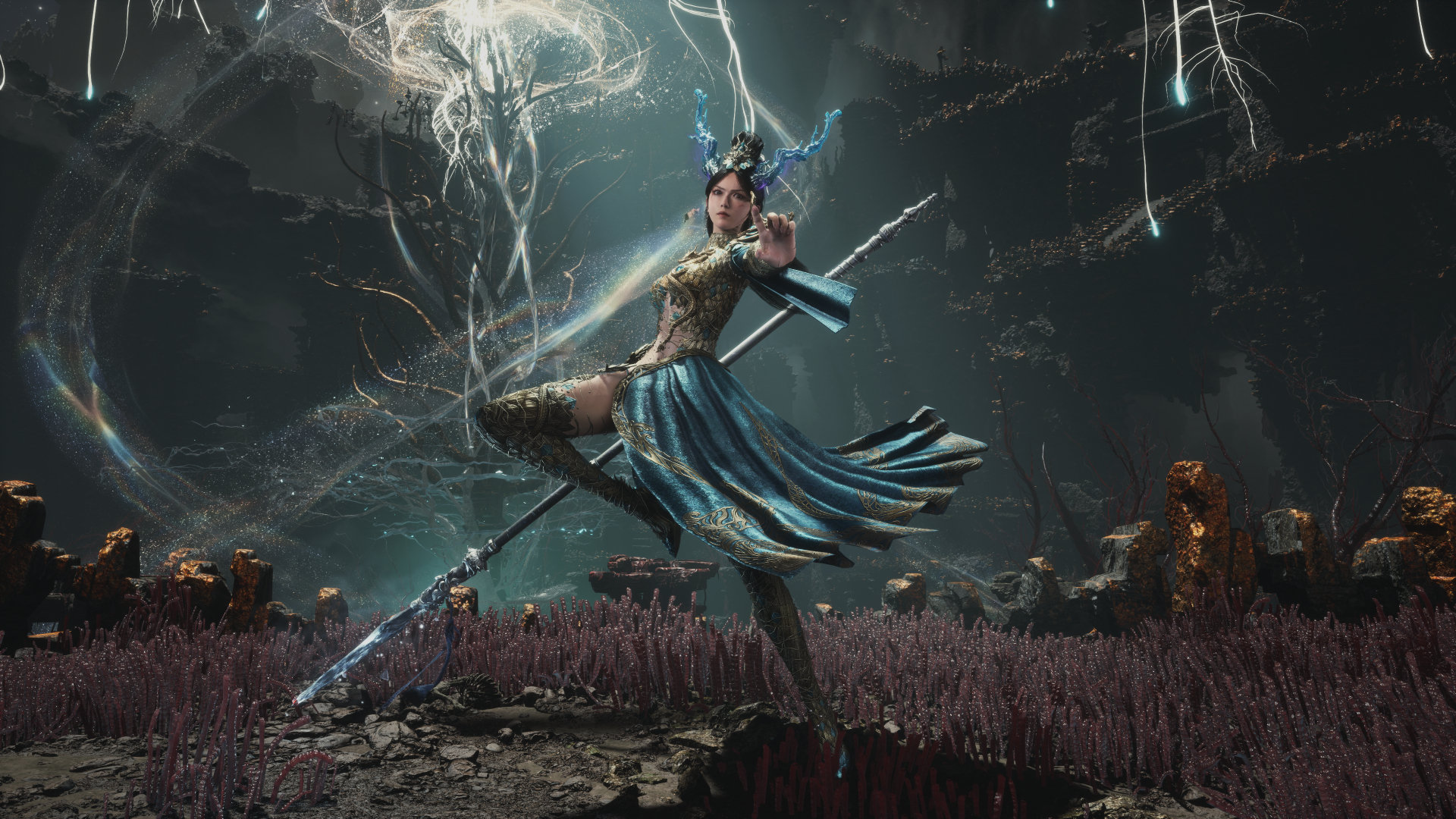
Play it if…
You want old-school Souls-inspired level design
Wuchang’s areas are impressively broad, with critical paths that aren’t always obvious. That means you’ll be doing plenty of organic exploration, and you might just find yourself wandering into new areas entirely.
You’re after something new from the subgenre
The game has plenty of ideas all its own, most of which are incredibly compelling. The Skyborn Might and Madness systems do wonders for Wuchang’s combat, and you’ll need to master both to overcome the game’s more challenging boss fights.
Don’t play it if…
Status effects really annoy you
Wuchang does not shy away from throwing status afflictions at you at any given chance. The abundance of poison swamps, frostbitten climes, despair-inducing hallways, and corrupted caves will definitely test your patience.
You hate keeping track of NPC questlines
There are a lot of side quests in Wuchang: Fallen Feathers, most of which are tied to the game’s many side characters. Sometimes these characters can be quite difficult to find, and if you end up beating an area or boss too early, you risk these quests abruptly coming to an end until your next playthrough.
Accessibility
Dedicated accessibility settings for audio and visuals are unfortunately minimal in Wuchang: Fallen Feathers at launch, including the lack of colorblind options. You can choose to display the game’s control scheme on-screen, and you can fully remap controls to your liking in the settings menu. But there isn’t anything noteworthy beyond that.
How I reviewed Wuchang: Fallen Feathers
I played Wuchang: Fallen Feathers from start to finish on PlayStation 5, with my first playthrough clocking in at just shy of 36 hours. That included defeating the vast majority of the game’s bosses (both mandatory and optional), thorough exploration of each area, and the completion of most side quests. I’m now well into my second playthrough on New Game Plus, which carries over your levels, skill tree progress, and equipment.
I played primarily with the DualSense Wireless Controller on an LG CX OLED TV, occasionally hooking up my RIG 900 Max HS gaming headset to experience the game’s fantastic music and ambient sound design.
First reviewed July 2025

Rhys is TRG's Hardware Editor, and has been part of the TechRadar team for over four years. Particularly passionate about high-quality third-party controllers and headsets, Rhys strives to provide easy-to-read, informative coverage on gaming hardware of all kinds. As for the games themselves, Rhys is especially keen on fighting and racing games, as well as soulslikes and RPGs.
You must confirm your public display name before commenting
Please logout and then login again, you will then be prompted to enter your display name.
